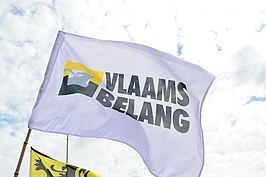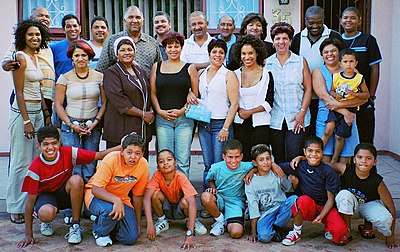Area of action: Society
Grounds of discrimination: Racism
In December 2018 Unia pressed in anti-Semitism hearings in the Belgian Senate for the reintroduction of an anti-Semitism watchdog. The organisation asked Minister Kris Peeters, at that time responsible for Equal Opportunities, to take the first steps towards an inter-federal action plan against discrimination and racism. Anti-Semitism remains a persistent problem. The calls being made by Unia in 2018 were in response to a large-scale survey of 16,000 Jews in twelve EU countries by the European Union Agency for Fundamental Rights (FRA), a human rights agency of the EU.
The findings of the report make for a sobering read. They underscore that antisemitism remains pervasive across the EU – and has, in many ways, become disturbingly normalised. Already in 2018 an overwhelming majority of survey participants felt that antisemitism was getting worse. They also feared for their own safety, and that of their loved ones. Though we also could notice not only the monotheist Hebrews or Jehudi were targeted. Jeshuaists and Muslims, worshipping the same God were not loved either and felt the pressure. Jeshuaists and Jews belonging to different Judaic denominations protect themselves by not coming out to much in the open and by leaving their kippa at home, only discreetly displaying mezuzas, avoiding certain areas in their cities or skipping Jewish events.
The many graphs contained in the report reveal a sobering picture of Belgium. Except for France, Jews do not experience anywhere in the EU as much hostility on the streets as they do in Belgium. Among those surveyed, 81 percent mentioned public spaces as the place with the most hatred of Jews. The European average is about 70 percent.
“These are figures that require a structural approach in the form of a vigilance unit and a plan that overarches policy areas,’
stressed Unia director at that time, Els Keytsman.
Already in 2018, a shocking statistic sended a clear message:
in the past five years, across twelve EU Member States where Jews have been living for centuries, more than one third say that they consider emigrating because they no longer feel safe as Jews.
In the meantime, we know about many Jews and Jeshuaists who left Belgium.
 Much too many people seem to forget how antisemitic acts can have a profound impact not only on individuals and those close to them, but also on the Jewish community as a whole. Several manifestations may bring forward all sorts of the types of antisemitic acts which we see increasing since a decade and by the growing popularity of two Flemish National parties, the right-wing populist Flemish nationalist Vlaams Belang, with a strong anti-immigrant message that succeeded the right-wing Vlaams Block, and the Nieuw-Vlaamse Alliantie (N-VA – New Flemish Alliance), a movement that self-identifies with the promotion of civic nationalism, which strives for the secession of Flanders from Belgium.
Much too many people seem to forget how antisemitic acts can have a profound impact not only on individuals and those close to them, but also on the Jewish community as a whole. Several manifestations may bring forward all sorts of the types of antisemitic acts which we see increasing since a decade and by the growing popularity of two Flemish National parties, the right-wing populist Flemish nationalist Vlaams Belang, with a strong anti-immigrant message that succeeded the right-wing Vlaams Block, and the Nieuw-Vlaamse Alliantie (N-VA – New Flemish Alliance), a movement that self-identifies with the promotion of civic nationalism, which strives for the secession of Flanders from Belgium.
The last few years in Belgium and France we have seen an increase in desecration of Jewish cemeteries, vandalism of Jewish buildings or institutions, expressions of hostility towards Jews and Jeshuaists in the street and other public places, but also an enormous antisemitism in the media. It is incredible what we can find on the internet, including social media, where nobody seems to be willing or able to silence the hate-speech.
In 2018 antisemitism online was already seen as a particularly widespread problem: a large majority of all respondents in the 12 survey countries (89 %) consider this either ‘a very big’ or a ‘fairly big’ problem, and as many (88 %) believed that it had increased over the past five years. The percentage of respondents indicating that antisemitism on the internet is problematic is especially high (at least 90 %) in Belgium, France, Italy, and Poland. In Belgium and France, a majority of respondents rated almost all antisemitic manifestations that the survey asked about as ‘a very big’ or ‘a fairly big’ problem. These are also the countries with the highest proportion of respondents indicating antisemitism in general as a problem.
The majority of respondents of that survey are aware of legislation that forbids discrimination based on ethnic origin or religion – some 64 %–87 %, depending on the area, indicated knowing about it. They are most aware of anti-discrimination legislation in employment and least aware of protection related to housing. Most respondents (71 %) also say they are aware of an organisation in the country that offers advice or support for people who are discriminated against, but we should be aware that out of self-protection most Jews and Jeshuaists do not dare to react or bring the problem into the public. Respondents most often referred to Jewish organisations specialising in the safety and security of the Jewish community and/or antisemitism, and national equal-ity or human rights bodies. Lots of Jews and Jeshuaists lost their trust in the Belgian State and in Belgian politicians.
Fortunatelyserious incidents are today punishable by law. For example, in 2018 Unia was a civil party in the case against the vandal who caused serious damage in the Jewish quarter of Antwerp.
“Unia was also a civil party in the case concerning the attack on the Jewish Museum in Brussels.”
Last November Unia was calling for a more inclusive image for folkloric events and intangible heritage such as the pre-Lent merrymaking and festivity carnival. Unia said local organisers and partners can play an important role in this. That is one of Unia’s recommendations in a report drawn up following the controversy about the anti-Semitic float in the municipality Aalst, on the Dender River, 24 km (15 miles) northwest of Brussels.
Unia feels that dialogue and awareness must be a priority.
“What is offensive to one person is apparently folklore for another. Showing consideration for other people’s sensitivities can never be simply imposed by law. Only through dialogue can we take into account the feelings of others and learn to see things from their point of view. “
That is why Unia organised meetings between Belgium’s Forum of Jewish Organisations and a group of Aalst carnivalists.
“Their float – depicting anti-Semitic stereotypes – was unintentionally reminiscent of Nazi propaganda. We understand that many people were shocked by this connotation, and it led to a highly polarised conflict. We have seen that both parties now have an understanding of each other’s position and context. Talking to each other does not guarantee that stereotypes will never crop up again, but it is a start.”
It could have gone the right way, but this year, it uncovered the hidden agenda more clearly. From what was presented at the cortège was more than just laughing with something that bothered them. It was showing their disgust for another culture and other religion than theirs.
Much too often we hear the excuse
“For carnivalists, freedom of expression means the freedom to make fun of anything and anyone.”
Though, one should question how far one can go with mockery. Unia says
“Conversely, that freedom also means that you are bound to provoke controversy now and then, and you have to be able to deal with criticism.”
People from Aalst seem to have lots of difficulty with the criticism they received over the last twelve months.
Lots of events happening in Aalst real lovers of God would never come to know if they were not shown on television and brought into social media.
Thanks to social media, images of parades and festivities are reaching the general public on an unprecedented scale and are thus amplified and sometimes, or more than once, may be taken out of context. Moreover, while in the past, traditions were not called into question, this questioning has now become appropriate, Unia notes.
“As such, that is a positive thing. Folkloristic events can evolve according to changing attitudes and new insights, allowing them to become celebrations in which no one is left out”,
according to Keytsman.
 We do find politicians and organisations for protecting civilians, should recognise historical similarities and see the dangers behind certain events, which, in the beginning may look harmless and childish, but have a very deep and dangerous undertone. Puerile actions may develop into actions out of frustration and dissatisfaction which generates aggression against certain population groups.
We do find politicians and organisations for protecting civilians, should recognise historical similarities and see the dangers behind certain events, which, in the beginning may look harmless and childish, but have a very deep and dangerous undertone. Puerile actions may develop into actions out of frustration and dissatisfaction which generates aggression against certain population groups.
This year out of frustration, how they were treated by Unesco, everal people in the parade mocked the specialized agency of the United Nations (UN), using Jewish caricatures as well.
But, from what we came to see and hear in the media, it went much further.
Unia promises to collect all the information and will investigate whether criminal offences were committed. For this, they are in contact with the prosecutor’s office and the police.
We wonder how Unia is going to act or take juridical prosecution against the group who had their float a sign labelled
“regulations for the Jewish party committee,”
and it included a not to misunderstand sarcastic:
“Do not mock Jews”
and a shocking
“Certainly do not tell the truth about the Jew.”
which clearly indicates they have formed an idea about Jews in general and do want others to believe that Jews have something to hide or do not want to have the truth about them told. This means those carnavalists understand the truth about the Jews is not or may not be told!?!
Rudi Roth, a journalist for the Antwerp-based Joods Actueel Jewish paper, said the expressions of anti-Semitism in Aalst this year were more numerous and prominent than last year. He called it a
“backlash effect.”
Coming closer to the event celebrities gave notice not having free time to come to the parade. Several politicians backed out of appearances with Aalst’s mayor, who has defended the parade displays.
According to Christophe D’Haese of the right-wing New Flemish Alliance, carnival is not an anti-Semitic event and should be seen in its context of
“everything is allowed”.
He said the event
“certainly has anti-Semitic elements,”
the likes of which he said had not been on display since the end of the Nazi occupation in 1945.
With good reason Rubinfeld said
“Aalst’s name is now associated with anti-Semitism,and that’s partly because of the mayor’s inaction.”
With questioning eyes, we are very curious to see whether Unia this year will make a real effort to go to court and make it clear that what has been shown this year in Aalst has been far out of proportion in our society and cannot be admitted.
+
Preceding
What to do in the Face of Global Anti-semitism
Anti-Semitic pressure driving Jews out of Europe
Perhaps Anti-Semitism for lots of people isn’t always easy to see
What makes you following Christ and Facebook Groups
A Jew and Muslim walking together side by side down USA city streets
Speaking up and Celebration of Purim
Numbers 10:10 Make Your Rejoicing Heard
Niet te negeren gebeurtenissen rond Joden in België
Hoe ver kan men gaan om zich te beroepen op Vrije meningsuiting
Aalst Carnaval: Unia analyseert meldingen
++
Related articles
- Who is a Jew?
- 25 Orthodox rabbis issued a statement on Christianity
- Religious Practices around the world
- 2014 European elections
- January 27 – 70 years ago Not an end yet to genocide
- World remembers Auschwitz survivors
- Objective views and not closing eyes for certain sayings
- Religion, fundamentalism and murder
- 2015-2016 Religion
- At the closing hours of 2016 #2 Low but also highlights
- Questiontime 2016-2017 report
- The American clouds of Anti-Semitism
- Donald Trump after declining numbers of people victimised for their religion managed to increase the numbers again
- Incidents of hate have become commonplace in the U.S.A. anno 2017
- Trusting present youngsters who are not necessary evil
- Is it time for UK Jews to pack the bags?
- This fighting world, Zionism and Israel #6
- ….a powerful way to put the universe on notice….
- A convinced voice to debunk false allegations
- Preparing for the most important weekend of the year 2018
- A stain of shame for the European Union
- Pushing people in a corner danger for indoctrination and loss of democratic values
- Signs of the times – “An object of scorn and ridicule”
- Signs of the times – “Anti-Semitism on the increase”
- Establishment of a European Pillar of Social Rights
- Our and EESC Workers’ Group Priorities for the European Union
- The fight against anti-Semitism is also a fight for a democratic, value-based Europe
- French showing to the whole world their fear and weakness
- A new decade, To open the eyes to get a right view
- A vibrant and inclusive movement within the American Jewish community
- A Secret of our Enemy: Inter-Ethnic Fault Lines Among the Jews (Full Article)
- In Every Generation: The Return of Anti-Semitism – Pesah Day 1, 5779
- Luca Jahier, EESC President on the present intolerance
- 2019 was #4 a Year of much deceit in Belgium and the rest of Europe
- Seventy-five years ago on January 27
- 75th anniversary of the liberation of Auschwitz
- 5th World Holocaust Forum
- 75 years after Auschwitz – Holocaust Education and Remembrance for Global Justice
- By the commemoration of the liberation of the Auschwitz-Birkenau camp #2 Holocaust deniers and twisters of the truth
- Is it really true that Anti-Semitism will never be tolerated?
- Auschwitz survivors providing a warning of rising anti-Semitism and exclusion of free thinking
- Agape or disinterested love
- Love your neighbour as yourself
-
Pavé de mémoire en Belgique






















































